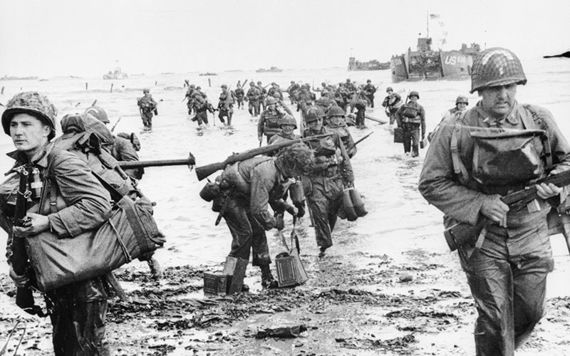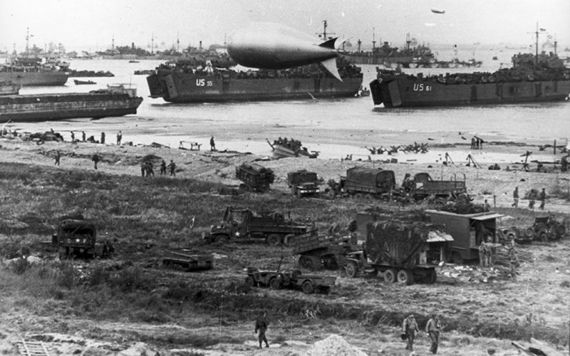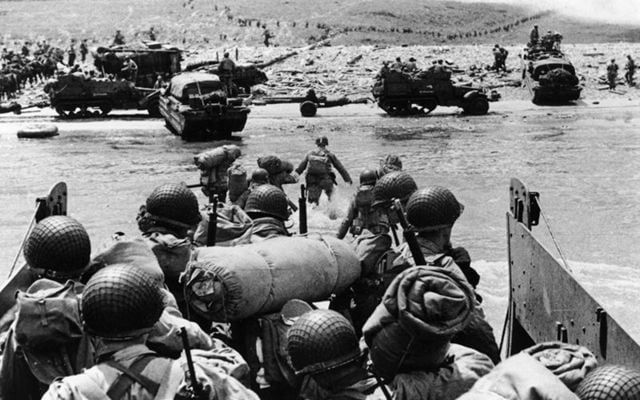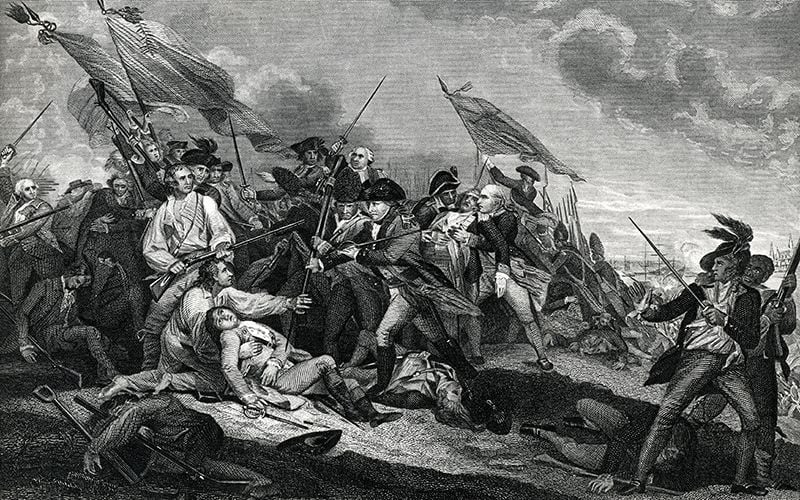The father of modern literary journalism is Cornelius Ryan from Dublin, whose massive “I was there” on the beach coverage of D-Day and its aftermath led to two incredible books and movies, "The Longest Day" and "A Bridge Too Far."
He was an unlikely war correspondent.
A Dublin native, he studied violin at the Irish Academy of Music and seemed destined for a high-performing classical music career far from any theater of war.
However, bored with a music career, he fled to London where he worked his way up to war correspondent for The Daily Telegraph.
Ryan was on a boat that ditched on Normandy Beach on June 6, 1944. He followed the Allied invasion attached to General Patton’s army.
Years later, he put together perhaps the best book about war ever written. Consider his description in "The Longest Day" of General Rommel on the day of the invasion: “In the ground-floor room, he used as an office, Rommel was alone. He sat behind a massive Renaissance desk, working by the light of a single desk lamp. The room was large and high-ceilinged.
“Along one wall stretched a faded Gobelin tapestry. On another, the haughty face of Duke Francois de la Rochefoucauld -- a seventeenth-century writer...looked down out of a heavy gold frame. There were a few chairs casually placed on the highly polished parquet floor and thick draperies at the windows, but little else.”

D-Day, June 6 1944: Landing on the beaches of France.
The description comes from Rommell’s adjutant and puts the reader in the room with Adolf Hitler’s greatest general just as the Allied invasion is about to hasten his end.
It was exquisite writing and research, and as Michael Shapiro wrote in the Columbia Journalism Review in 2010, it broke completely new ground.
Shapiro wrote, “In 1957, an expatriate Irish newspaperman struggling to make a buck (had) a hazily formed idea about a fifteenth-anniversary retelling of the events of June 6, 1944: D-Day.
“Here was the true, humble, and all-but-forgotten beginning to the modern age of Journalism as literature.
“The book ('The Longest Day') was a triumph, earning rave reviews and sales that, within a few years, would stretch into the tens of millions in eighteen different languages.
“I opened the book on the eve of a long weekend. I was hooked after a single page. Something was taking place in the telling of this story that transcended (journalism).”

The massive operation that was D-Day on June 6 1944.
The book was written when Ryan placed an ad in several newspapers in 1957 which went, “June 6th, 1944 Were You There?”
1,150 people wrote back. And of that group, he interviewed 172 alone or with his assistants.
Out of that came a book that puts you at the heart of the most significant invasion of all time. You are there as the invasion forces first gain the beaches and the Germans, taken by surprise, fight back furiously.
You are there on the long trek to Berlin, the fate of civilization in the hands of young soldiers, many of whom had never left home before.
Ryan died at just 54 from prostate cancer. On his gravestone in Connecticut is his name and one word: “Reporter.”
No one has earned that title more. Upon the anniversary of D-Day, Ryan deserves to be remembered.
Here is British Pathé newsreel footage from D-Day 1944:
* Originally published in June 2019, updated in June 2024.




Comments